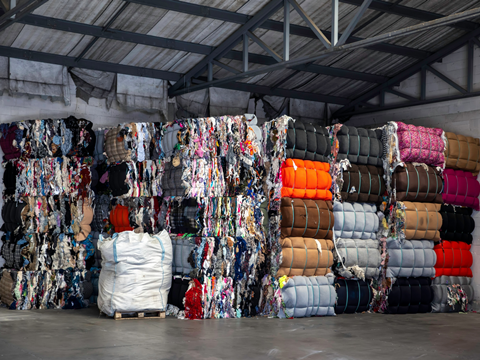
CARBIOS and recycling and waste management company FCC Environment UK have signed a Letter of Intent (LOI) to study the implementation of a UK based plant, using CARBIOS’ PET biorecycling technology.
CARBIOS says recycling has plateaued in the UK in recent years, but UK government policy supports a continual move to a more circular economy, which FCC Environment supports. Achieving a circular economy requires innovation and investment to deliver real environmental change, CARBIOS says, and exploring biorecycling is one way of doing this.
FCC states it is keen to understand this technology better by seeking an evidence-based view on the advantages of using enzymes for the treatment of PET, such as lower energy consumption and better circularity of the polymers back into the PET production lines. The depolymerization process developed by CARBIOS also facilitates the recycling of all kinds of PET waste, including problematic fractions such as polyester textiles, into high-quality recycled PET.
In order to tackle the plastic waste crisis, CARBIOS says it has developed a revolutionary enzymatic depolymerization technology that enables efficient and solvent-free recycling of PET plastic and textile waste into virgin-like products. As well as the ‘world’s first’ industrial-scale enzymatic PET recycling plant currently under construction in Longlaville, France, the UK-based plant would process PET waste that is currently not recyclable using conventional recycling technologies, such as coloured, multilayered or textile waste.
Emmanuel Ladent, CEO of CARBIOS, commented: “By creating value from waste, CARBIOS’ PET biorecycling technology is generating significant interest from waste management companies, proving that CARBIOS’ solution is relevant to both PET producers and waste management companies. For CARBIOS, partnering with FCC means access to feedstock at the source through its established collection systems, enhancing the efficiency and impact of our sustainable waste solution.”
Steve Longdon, CEO of FCC Environment UK, added: “To deliver the challenges set out in the Environment Act, we need to think creatively about how we recover the value in materials that society no longer wants, and textiles, as we know from our work promoting a reuse culture, pose a huge challenge to our sector. We are keen to explore with CARBIOS what contribution this technology could make to the UK circular economy and to examine further its place in the UK waste hierarchy from a firm evidence base.”
CARBIOS recently signed a Memorandum of Understanding with Nouvelles Fibres Textiles to establish a contract for the supply of polyester textiles to the biorecycling plant under construction in France, hoping to enable 5,000 tonnes a year of textiles to be redirected towards biorecycling from 2026 onwards. The companies say the polyester textiles supplied will come from used or end-of-life textiles prepared for recycling by Nouvelles Fibres Textiles in France, using CARBIOS’ enzymatic depolymerization technology.
This month, CARBIOS announced it has licensed its PET bio-recycling technology to SASA and approved the construction of an enzymatic depolymerization plant in Adana, Turkey, with an anticipated yearly capacity of 100,000 tonnes of prepared PET waste sourced from textiles. SASA is set to produce polyester pellets, fibres, and textiles from a range of waste sources, including polyester waste.
In February, as part of our The Brief series, we looked at how viable biorecycling is for plastics, including current research and developments, the challenges involved (such as whether it can be implemented at scale), and asked if its place in recycling could be seen as an addition or an alternative to current methods.
If you liked this story, you might also enjoy:
How are the top brands progressing on packaging sustainability?
Sustainable Innovation Report 2024: Current trends and future priorities
Reuse vs. single use – which is better for the environment?
The ultimate guide to global plastic sustainability regulation














No comments yet